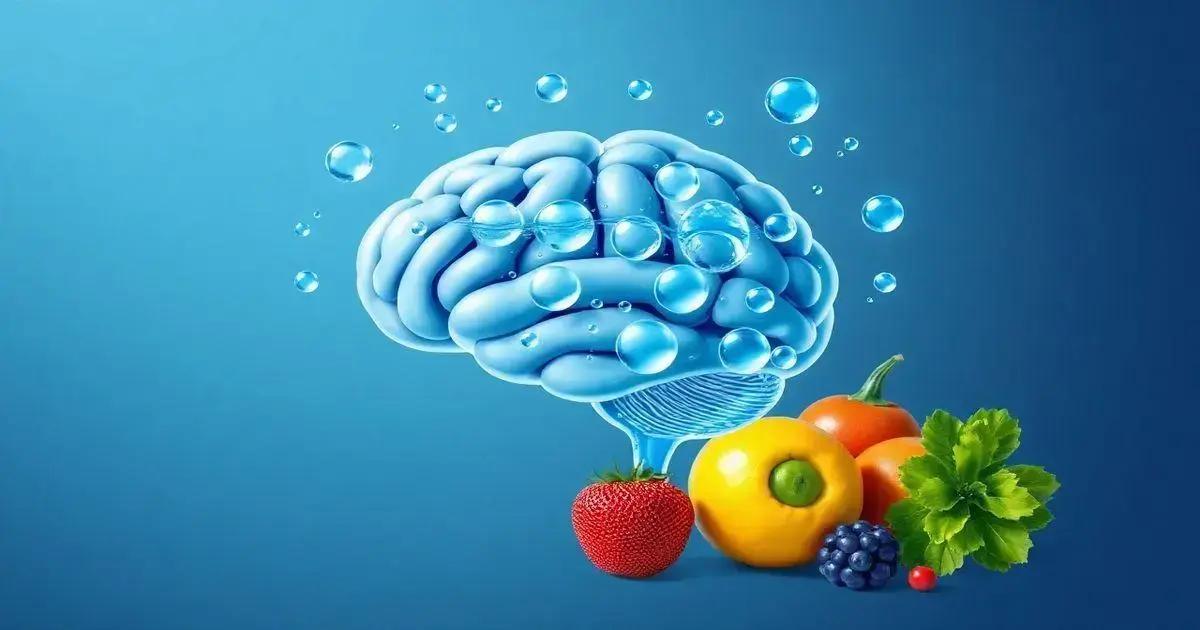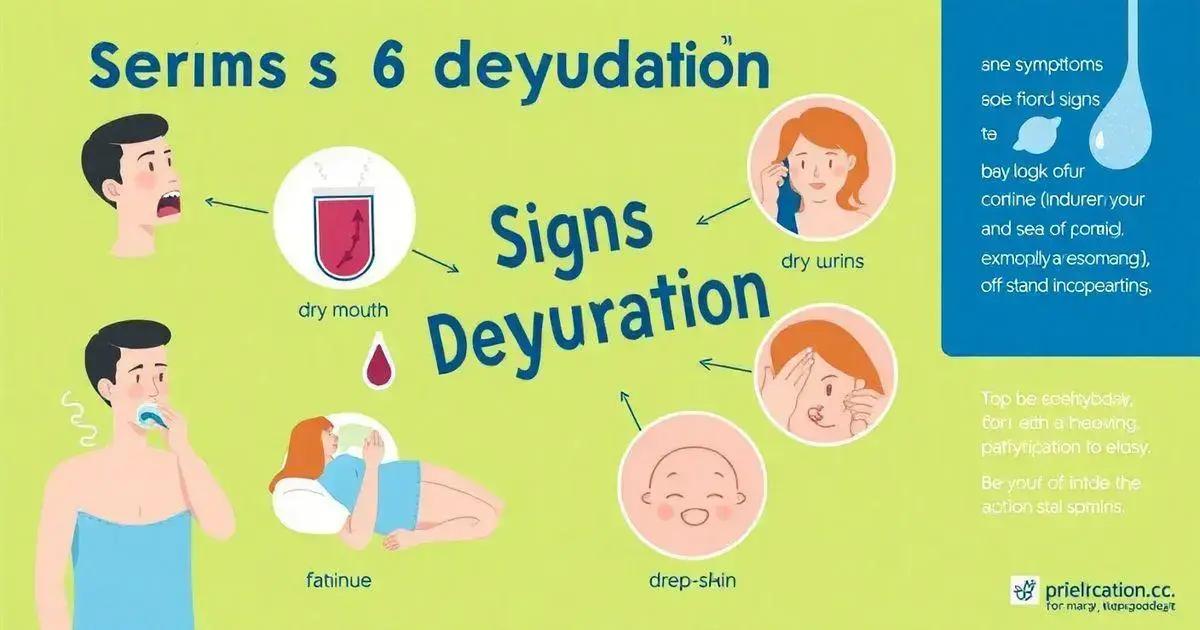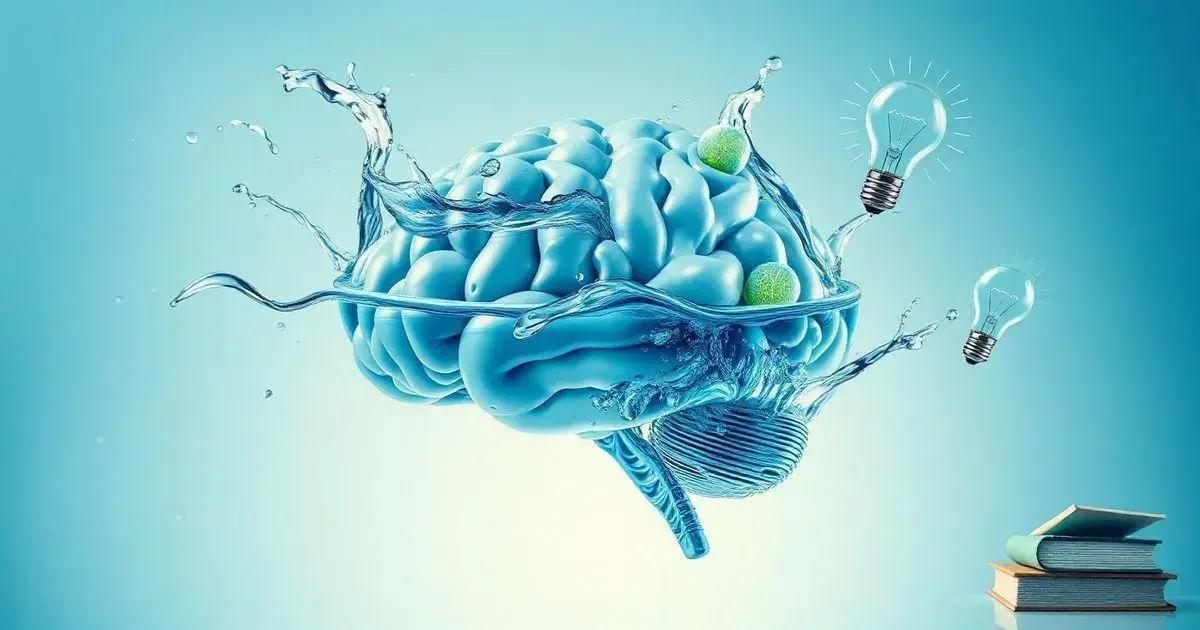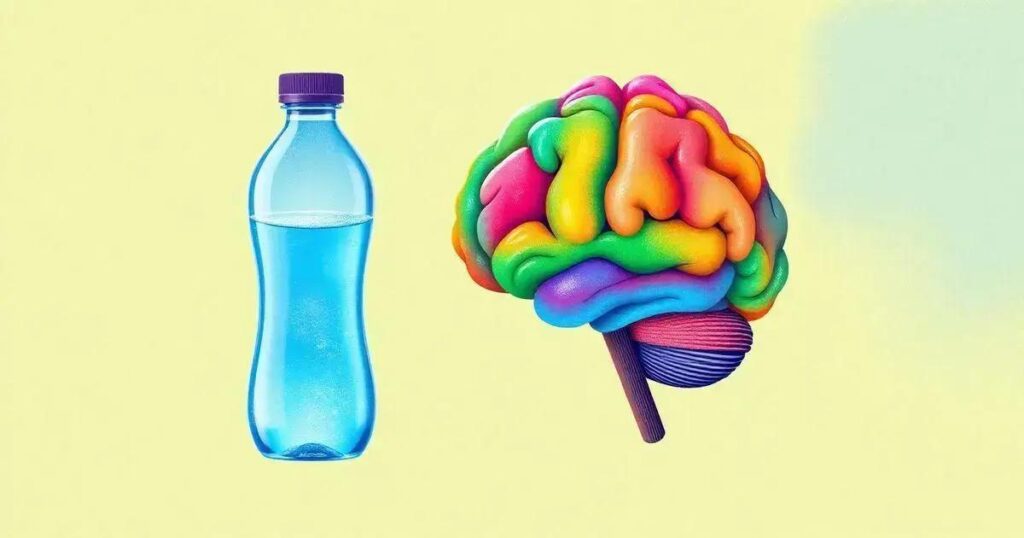Proper hydration is essential for improving mental clarity, as it enhances focus, memory, and mood while reducing fatigue. By recognizing dehydration signs, incorporating water-rich foods, and utilizing practical tips like carrying a water bottle, you can maintain optimal hydration. Drinking enough water supports overall brain health and cognitive function, helping you tackle daily challenges with ease.
Proper hydration plays a crucial role in maintaining mental clarity and cognitive function. Many people overlook the significance of drinking enough water and its direct influence on brain health. In this article, we will delve into the science behind hydration and mental clarity, explore the signs of dehydration, and offer practical tips for staying hydrated. By the end, you will understand the profound impact that proper hydration has on your mind.
The Science Behind Hydration and Mental Clarity

The connection between hydration and mental clarity is supported by various scientific studies. Water comprises about 75% of the brain, highlighting its importance in maintaining cognitive function. When we are adequately hydrated, various processes, such as concentration, memory, and mood regulation, are optimized.
How Hydration Affects the Brain
Hydration plays a vital role in neurotransmission. Our brain cells require water to function effectively; if we’re dehydrated, the communication between neurons can be impaired. This disruption can lead to difficulties in focusing and remembering information.
Dehydration and Cognitive Performance
Research has shown that even mild dehydration can adversely affect cognitive performance. When individuals lose just 1-2% of their body weight in water, they may experience symptoms like reduced attention span and increased fatigue. Studies indicate that hydration directly correlates with mental clarity and efficiency.
Optimal Water Intake
The optimal amount of water intake varies for each individual, largely depending on factors like body weight, activity level, and climate. Generally, it is recommended to drink at least 8-10 cups of water daily for adults to support brain health. This can help ensure that your brain remains sharp and focused.
Additionally, consuming water-rich foods, such as fruits and vegetables, can enhance hydration levels. Foods like cucumbers, oranges, and strawberries contain high water content and contribute positively to daily hydration goals.
Key Takeaways on Hydration and Mental Clarity
Maintaining proper hydration is essential for sustaining mental clarity. A well-hydrated brain functions better, making it easier to think clearly, concentrate, and retain information. Each individual should be mindful of their hydration habits and strive to drink enough water, ensuring optimal cognitive performance throughout the day.
Signs You Are Dehydrated

Recognizing the signs of dehydration is crucial to maintaining mental clarity and overall health. Here are some common indicators that you may not be drinking enough water:
1. Dry Mouth and Thirst
Feeling thirsty is one of the first signs of dehydration. Your body will signal for more water when you start to feel a dry mouth or increased thirst. Ignoring these signs can lead to more severe dehydration.
2. Dark Urine
Color can be a good indicator of hydration levels. If your urine is dark yellow or amber, it suggests that you are likely dehydrated. Ideally, your urine should be light yellow if you are well-hydrated.
3. Fatigue and Lethargy
When you are dehydrated, your energy levels may drop. You might feel tired or lethargic as your body struggles to function optimally without adequate water.
4. Headaches
A common symptom of dehydration is headaches. A lack of water can cause the brain to temporarily shrink from fluid loss, leading to pain and discomfort.
5. Dizziness and Confusion
Severe dehydration can affect cognitive function, causing feelings of dizziness or confusion. If you notice these symptoms, it’s crucial to hydrate quickly.
6. Dry Skin and Lips
When your body is dehydrated, your skin may lose its elasticity and feel dry. Cracked or chapped lips are another common sign that you need more fluids.
7. Constipation
Water plays a vital role in digestion. Dehydration can lead to constipation, making it difficult for your body to maintain regular bowel movements.
Being aware of these signs can help you take action to improve your hydration levels. Remember to listen to your body and drink water consistently throughout the day for optimal mental clarity.
Tips for Staying Hydrated Throughout the Day

Staying hydrated throughout the day is crucial for maintaining mental clarity and overall health. Here are some effective tips to help you increase your hydration:
1. Carry a Water Bottle
Always have a reusable water bottle with you. This makes it easy to sip water regularly, whether at your desk, gym, or on the go. Having a visible reminder encourages you to drink more.
2. Set Hydration Reminders
Use your phone or a hydration app to set reminders to drink water. This can help you stay on track and develop a habit of regular hydration.
3. Flavor Your Water
If plain water seems boring, add some flavor! Slices of lemon, lime, cucumber, or berries can enhance the taste and make drinking water more enjoyable.
4. Drink Before Meals
Make it a habit to drink a glass of water before each meal. This not only helps with hydration but can also aid digestion and control appetite.
5. Eat Water-Rich Foods
Incorporate fruits and vegetables with high water content into your diet. Foods like watermelon, oranges, cucumbers, and spinach can contribute to your daily hydration.
6. Monitor Your Intake
Keep track of how much water you drink each day. This can help you understand your hydration levels and identify when you need to increase your intake.
7. Be Mindful of Activity Levels
When exercising or spending time in heat, increase your water intake to compensate for fluid loss through sweat. Ensure you stay hydrated before, during, and after physical activities.
By following these tips, you can make hydration a natural part of your daily routine and enjoy the mental clarity benefits that come with it.
The Benefits of Optimal Hydration for Your Mind

Optimal hydration has many benefits for your mind and is essential for mental clarity. Here are some ways that drinking enough water can improve your cognitive functions:
1. Enhanced Focus and Concentration
When well-hydrated, your brain can perform its best. Proper fluid balance helps the brain maintain focus and improves concentration. This is especially important during tasks that require sustained attention.
2. Improved Memory
Studies have shown that dehydration can impair short-term memory. Drinking enough water supports memory retention and recall, helping you remember important information more effectively.
3. Better Mood
Your overall mood can be influenced by your hydration levels. Dehydration may lead to increased feelings of anxiety or irritability. Staying hydrated supports emotional well-being and promotes a positive mood.
4. Reduced Mental Fatigue
Drinking enough water can minimize feelings of mental fatigue. When you’re well-hydrated, your brain does not tire as quickly, allowing you to perform mental tasks for longer periods without feeling exhausted.
5. Enhanced Problem-Solving Skills
Optimal hydration has been linked to better problem-solving abilities. When your brain is adequately hydrated, it functions more efficiently, helping you tackle challenges and come up with creative solutions.
6. Lower Stress Levels
Being well-hydrated can help lower stress hormone levels, such as cortisol. Reduced stress contributes to clearer thinking, helping you manage daily challenges with a calm and focused mind.
7. Overall Brain Health
Long-term hydration supports overall brain health. Drinking sufficient water helps maintain healthy brain structures and functions, positively impacting cognitive development and function.
By prioritizing hydration, you can unlock these mental benefits and enjoy improved cognitive performance throughout your day.
In Summary: The Importance of Proper Hydration
Maintaining optimal hydration is essential for both physical and mental well-being. By drinking enough water, you can enhance your focus, improve memory, and maintain a positive mood. Understanding the signs of dehydration can help you take action before it negatively affects your cognitive performance.
Implementing simple tips for staying hydrated throughout the day can significantly impact your overall health. From carrying a water bottle to incorporating water-rich foods into your diet, small changes can lead to substantial benefits.
Ultimately, prioritizing hydration is a valuable investment in your mental clarity and cognitive function, ensuring that your mind remains sharp and prepared to tackle daily challenges.
FAQ – Frequently Asked Questions about Hydration and Mental Clarity
How does hydration affect mental clarity?
Proper hydration is essential for maintaining focus, improving memory, and reducing fatigue, all of which contribute to better mental clarity.
What are the signs that I am dehydrated?
Signs of dehydration include dry mouth, dark urine, fatigue, headaches, and dizziness. Being aware of these can help you stay hydrated.
How much water should I drink daily?
Generally, it is recommended to drink at least 8-10 cups of water daily, but individual needs can vary based on activity level and environment.
What are effective tips for staying hydrated throughout the day?
Carry a water bottle, set reminders to drink, include water-rich foods in your diet, and drink water before meals to increase your hydration.
Can hydration improve my mood?
Yes, staying properly hydrated can reduce feelings of anxiety and irritability, promoting a more positive mood and emotional well-being.
What are the benefits of optimal hydration for brain health?
Optimal hydration supports memory retention, enhances problem-solving skills, reduces mental fatigue, and improves overall cognitive function.












